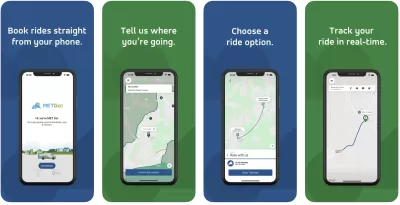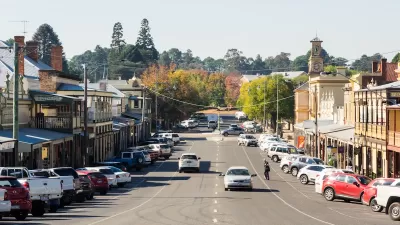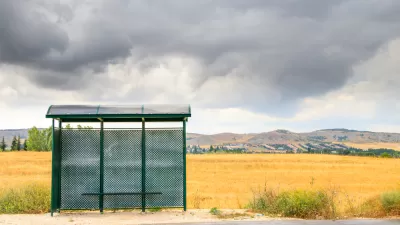Two Virginia transit companies launched pilot projects for on-demand microtransit services in 2021, spurring record growth in ridership as a result.

Public transit won’t work in rural settings like it does in urban areas—but that doesn’t mean it won’t work at all.
Two rural Virginia transit agencies, Bay Transit on the Northern Neck and Mountain Empire Transit in the Southwest, are proving that point after launching on-demand microtransit services in 2021 and achieving significant ridership growth in 2022.
An article by Wyatt Gordon tells the story of the two transit agencies’ foray into on-demand microtransit, from an inception that was enabled by the state’s Department of Rail and Public Transportation (DRPT) applying for an Integrated Mobility Innovation grant from the Federal Transit Administration.
The pilot project launched by Mountain Empire Transit (METGo) with that funding provides a fare-free alternative to traditional Medicaid-sponsored transportation that previously was the only option for seniors living in the METGo service area.
“In 2022, METGo riders comprised 38% of the system’s total ridership, helping Mountain Empire Transit to set a new ridership record,” reports Gordon.
In the Northern Neck, “Bay Transit eliminated two underperforming fixed routes that served the Gloucester County courthouse and replaced them with the Bay Transit Express-branded microtransit service,” reports Gordon. “The result was a 222% increase in ridership compared to the cut routes.”
The Bay Transit pilot project was so popular that the county is now paying for the service “via a combination of regular operating dollars and a matching grant from the locality.”
FULL STORY: New microtransit service more than doubled ridership in rural regions

Planetizen Federal Action Tracker
A weekly monitor of how Trump’s orders and actions are impacting planners and planning in America.

Congressman Proposes Bill to Rename DC Metro “Trump Train”
The Make Autorail Great Again Act would withhold federal funding to the system until the Washington Metropolitan Area Transit Authority (WMATA), rebrands as the Washington Metropolitan Authority for Greater Access (WMAGA).

DARTSpace Platform Streamlines Dallas TOD Application Process
The Dallas transit agency hopes a shorter permitting timeline will boost transit-oriented development around rail stations.

LA County Creating Action Plan to Tackle Extreme Heat
Los Angeles County is creating a Heat Action Plan to help communities stay safe during extreme heat, with steps like adding more shade, improving buildings, and supporting the neighborhoods most at risk.

Maryland Plans Quick-Build Complete Streets Projects
The state will use low-cost interventions to improve road safety in five Maryland counties.

Downtown Los Angeles Gears Up for Growth
A new report highlights Downtown L.A.’s ongoing revival through major housing projects, adaptive reuse, hospitality growth, and preparations for global events in the years ahead.
Urban Design for Planners 1: Software Tools
This six-course series explores essential urban design concepts using open source software and equips planners with the tools they need to participate fully in the urban design process.
Planning for Universal Design
Learn the tools for implementing Universal Design in planning regulations.
City of Charlotte
Municipality of Princeton
Roanoke Valley-Alleghany Regional Commission
City of Camden Redevelopment Agency
City of Astoria
Transportation Research & Education Center (TREC) at Portland State University
US High Speed Rail Association
City of Camden Redevelopment Agency
Municipality of Princeton (NJ)





























